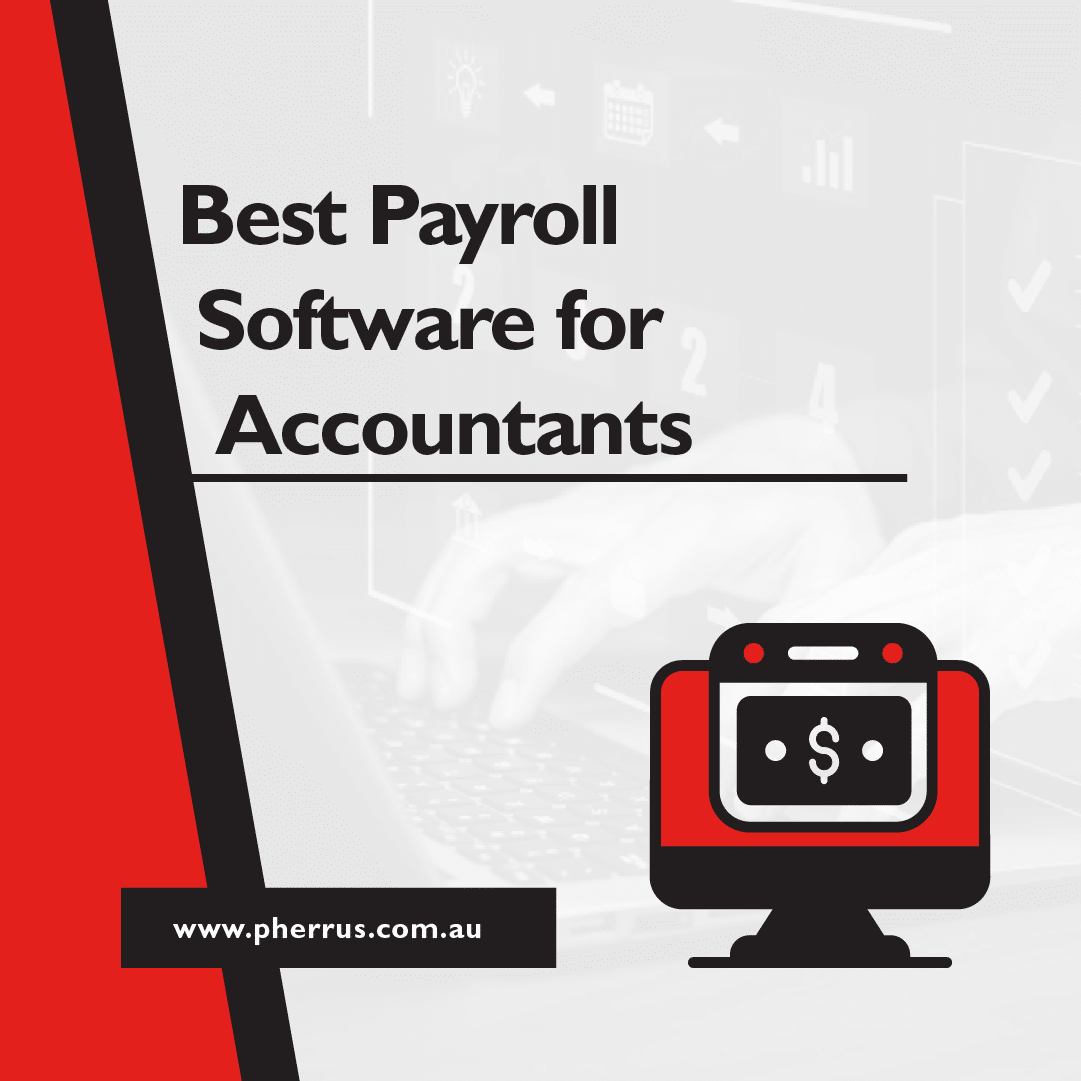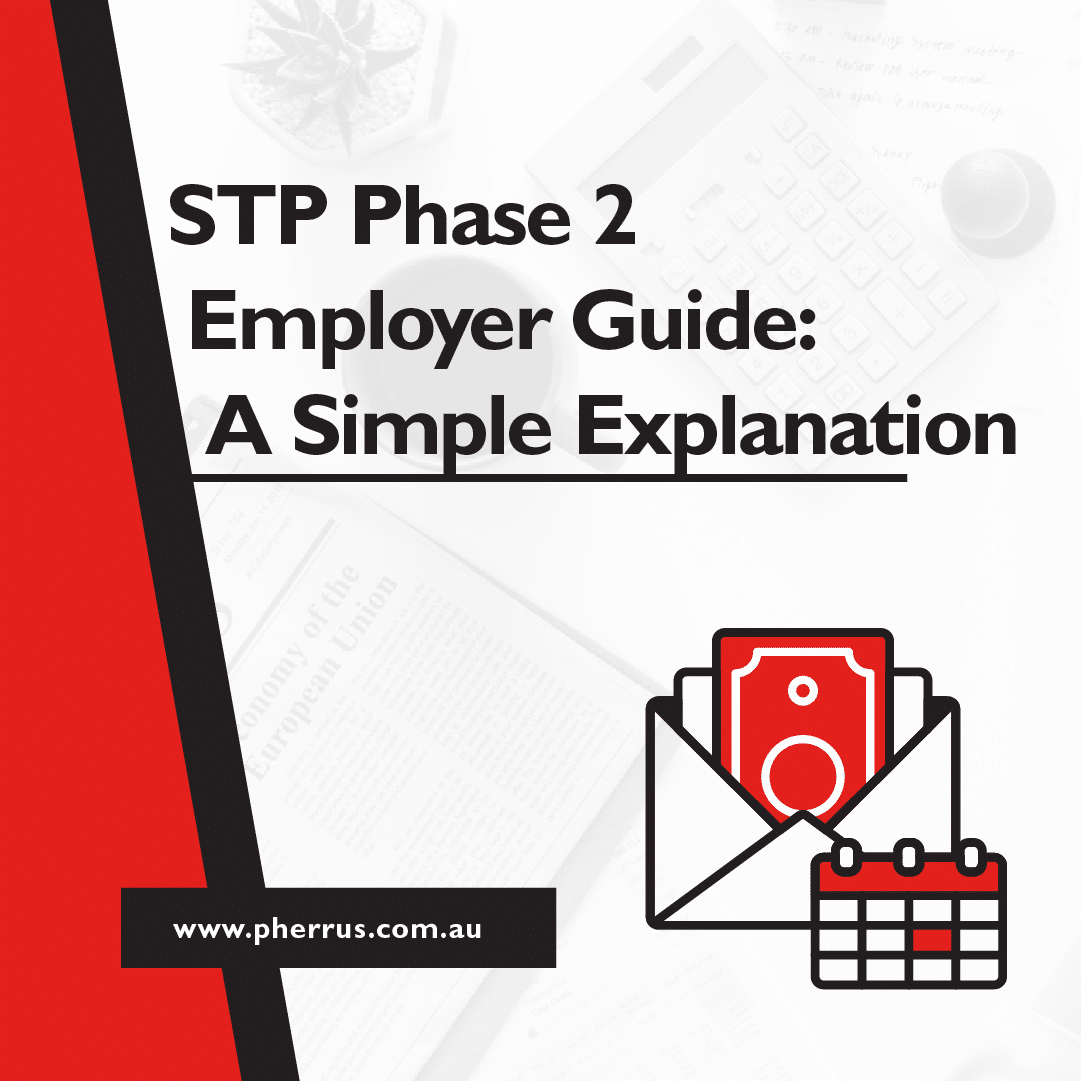Looking for payroll software that doesn’t just work but works for you?
As an accountant, your time is precious, your payroll processes need precision, and your clients expect perfect results.
The right payroll software can deliver such results efficiently and seamlessly!
But with so many options on the market, which one is the best fit for you?
Let’s break down what features you should look for in payroll software so you can make an informed choice.
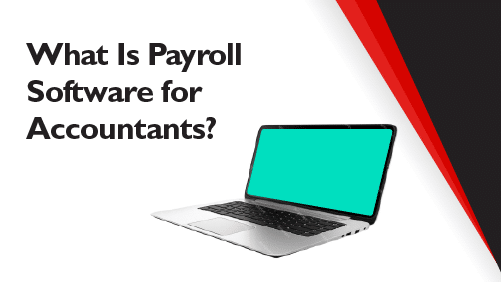
What Is Payroll Software for Accountants?
Online payroll software automates the complex task of calculating employee wages, taxes, and deductions.
Its benefits include
- Faster and more accurate payroll processing.
- Tracking employee hours, leave balances, and benefits all in one place.
- Keeping businesses compliant with the latest tax laws and regulations, reducing the risk of costly errors and penalties.
- Saving staff time and lowering administrative costs.
- Cloud-based access, allowing accountants and business owners to manage payroll from anywhere.
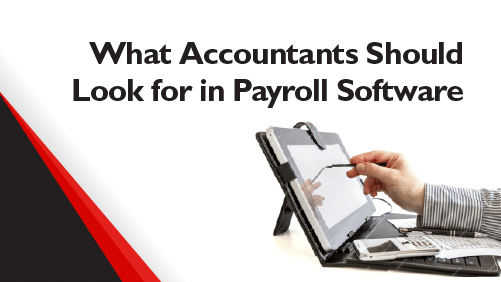
What Accountants Should Look for in Payroll Software
Whether you need payroll software to run your own business’ payroll or manage your clients’ payroll, here are six features you should look for.
1. Single Touch Payroll (STP) Integration
STP is a mandatory system that requires employers to report employee payroll information, including salaries, wages, and superannuation, directly to the Australian Taxation Office (ATO) each time they pay their employees.
Payroll software with STP integration does the hard work for you by automatically reporting up-to-date payroll data to the ATO with each pay run.
2. Automatic Pay Item Calculations
Payroll software for accountants should automatically calculate employee
- Wages
- Overtime
- Allowances
- Deductions
- PAYG withholding taxes
- Superannuation contributions
It should also be able to set up custom pay items to suit specific business needs, such as
- Bonuses: Performance-based payments.
- Commission: Earnings based on sales or specific achievements.
- Fringe benefits: Non-cash benefits like company cars and health insurance.
- Leave loading: Extra pay on top of regular wages when taking leave.
- Shift loadings: Additional pay for night shifts and weekend work.
- Reimbursements: Payments for business expenses incurred by employees.
- Special allowances: Payments for unique job conditions, such as travel and equipment use.
3. Integration With Other Accounting Software
If you’re using basic accounting software that focuses solely on core accounting functions or a modular system whose base version does not include payroll processing, look for payroll software that will integrate with your current accounting software/system.
Integration reduces double data entry by syncing payroll data with your accounting software.
Alternatively, you may want to consider switching to accounting software with built-in payroll processing capabilities for a one-stop shop accounting and payroll solution.
Xero, MYOB, and QuickBooks are popular choices.
4. Solid Data Protection
Employee payroll data is sensitive because it includes confidential information such as personal identification details, salaries, tax information, bank account numbers, and superannuation contributions.
Unauthorised access and data breaches can lead to identity theft, financial fraud, and legal issues for employees and the business.
To protect this critical information, choose payroll software with robust security protocols that meet Australian data protection regulations.
Protocols such as
- Data encryption: Converts payroll data into a coded format that can only be accessed or deciphered by authorised users.
- Multi-factor authentication: Users must provide multiple verification forms, like passwords and a one-time code.
- Secure user access controls: Allows businesses to set specific user permissions so that only authorised personnel can view and modify payroll data.
- Regular security updates: Keeps the software protected against new vulnerabilities.
- Regular data backups: Creates copies of payroll data that can be restored in case of data loss or breach.
5. Generation of Customisable Reports
Payroll software for accountants that can generate customised payroll reports will help you in several ways.
You’ll be able to
- Tailor reports to meet specific needs: Custom pay structures, department-specific payroll costs, and individual employee wage breakdowns.
- Highlight particular data points: Overtime hours, leave balances, and deductions per employee.
- Produce reports required by regulatory bodies: STP compliance reports for the ATO, end-of-year financial summaries, PAYG payment summaries, and superannuation contribution reports.
- Analyse trends: Increases in overtime costs, shifts in payroll expenses over time, and patterns in employee leave usage.
- Make informed recommendations to clients: Adjusting staffing budgets, implementing cost-saving measures, and planning for upcoming payroll tax obligations.
6. Employee Self-Service Entry
A payroll system that allows staff to access their pay slips, view leave balances, and update personal information is invaluable.
Having immediate access to their payroll information helps employees build trust in their employer.
And self-service access is super convenient—typically available via web portals or mobile apps.
This system also minimises the need for you or your clients to handle routine employee inquiries and updates. Everyone wins!
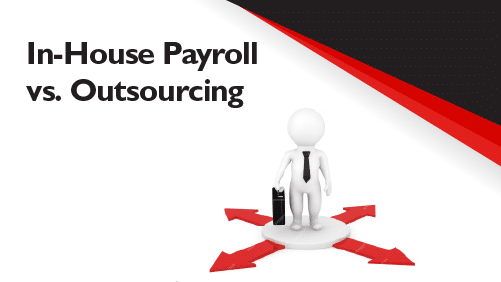
In-House Payroll vs. Outsourcing
If you don’t have the time to manage your business’ payroll because you’re busy looking after your clients, you may consider hiring an in-house payroll staff member.
While this gives you full control over the payroll process, it can be expensive because it requires investment in dedicated payroll staff or training existing employees.
There are also costs associated with ongoing administration tasks, data security measures, and potential errors.
Should you outsource your payroll, just as many of your clients likely outsource their payroll to you?
You know that outsourcing to another payroll provider will save you money (compared to hiring in-house payroll staff) and time, plus reduce your workload.
It’s definitely worth thinking about!

Pherrus: Your Payroll Software Gurus
If you decide to outsource your payroll processing, you can’t go past the expert payroll providers here at Pherrus!
We leverage the real-time data and automation of payroll software and combine that with our in-depth understanding of payroll management, tax laws, and strategic financial advice.
This comprehensive approach will free up your time to focus on driving your business forward.
Contact us today to find out more about our personalised payroll services. Fill out our online form or call +61 (02) 9099 9109 to book an appointment at our Bella Vista office in Sydney, NSW.
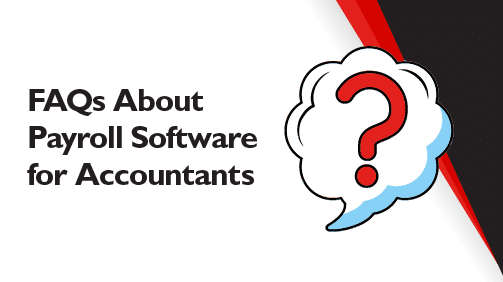
FAQs About Payroll Software for Accountants
What Software Do Accountants Use Most?
Popular payroll programs in Australia include
- Xero: Known for its user-friendly interface and strong integration capabilities.
- MYOB: Offering comprehensive accounting solutions tailored to Australian businesses.
- QuickBooks: Popular for its robust features and scalability.
What Is the Best Software for Payroll?
The best payroll software is one that
- Is STP-enabled to report payroll data automatically to the ATO.
- Automates payroll processing, including wage calculations, tax withholdings, and superannuation contributions.
- Integrates with other accounting software.
- Generates customisable payroll reports.
- Has robust security protocols.
- Supports employee self-service.
Do Professional Accountants Use QuickBooks?
Many professional accountants use QuickBooks because of its comprehensive features, including bookkeeping, payroll processing, and financial reporting.
QuickBooks also offers tools specifically designed for accounting professionals, enabling efficient client management and collaboration.


